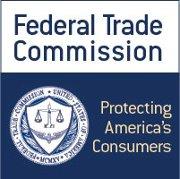
FTC and State of Florida Win Summary Judgment: Court Orders Ringleader of Debt-Relief Scam to Pay $23 Million and Imposes Industry Bans
Kevin W. Guice defrauded more than 10,000 consumers nationwide
A federal judge in Florida has permanently banned Kevin W. Guice from the telemarketing and debt-relief industries, agreeing with the Federal Trade Commission and the State of Florida that he founded and operated a massive debt-relief scam that took in over $23 million from more than 10,000 consumers, until halted by a June 2016 temporary restraining order.
“Guice bombarded consumers with illegal robocalls and tricked them into paying thousands of dollars for worthless credit card debt reduction services,” said Andrew Smith, Director of the FTC’s Bureau of Consumer Protection. “Working with our partners in the Florida AG’s office, we were able to bring Guice to justice and stop this massive fraud.”
According to the evidence the court used to make its ruling, Guice’s operation consisted of two telemarketing companies and 11 shell companies which worked as a common enterprise to sell two types of fraudulent debt relief services, all while concealing Guice’s involvement. Operating out of a boiler room in Orlando, Florida, Guice’s telemarketers inundated consumers with millions of robocalls, including calls to telephone numbers on the FTC’s National Do Not Call Registry.
Using aliases such as “Bank Card Services” and “Credit Assistance Program,” Guice’s telemarketers falsely claimed to be a “licensed enrollment center” for major credit card networks like MasterCard and Visa, and promised consumers that they would substantially and permanently lower their interest rates. Guice charged consumers illegal up-front fees of between $500 and $5,000 for this service, but consumers did not obtain the permanent and substantial interest reductions they were promised.
Guice’s operation also pitched a bogus credit card debt-elimination service, charging between $2,500 and almost $26,000 up front, claiming that they could access funds from the government or from a lawsuit against the credit card industry to pay off consumers’ credit card debt. There were no such funds, and consumers who purchased Guice’s debt-elimination service wound up deeper in debt with damaged credit scores and higher interest rates and late fees.
What the Final Order Means
The order and permanent injunction resolve the FTC’s and the State of Florida’s charges against Guice under the Federal Trade Commission Act, the Telemarketing Sales Rule, and the Florida Deceptive and Unfair Trade Practices Act. The order contains both injunctive and monetary relief, permanently barring Guice from all telemarketing, either directly or through an intermediary.
The order permanently bars Guice from advertising, marketing, promoting, offering for sale, selling, or assisting anyone else in any of these activities in relation to the provision of debt-relief products or services. It also permanently bars him from making a range of material misrepresentations related to the marketing or sale of any product.
Next, the order permanently bars Guice from failing to clearly and conspicuously disclose any of the items above, as well as from taking a cash advance against consumers’ credit cards or causing billing information to be submitted for payment before getting consumers’ express written consent to do so.
Finally, the order imposes a non-suspended judgment of $23,099,878 against Guice, payable to the Commission, for restitution to the consumers he defrauded. In addition to cash, Guice will surrender his 55-foot ocean yacht (the “Tuff Life II”), a luxury-watch collection, and other personal property to a court-appointed receiver.
This case was brought jointly with the State of Florida’s Office of the Attorney General, and the FTC appreciates its assistance in this matter.
The Federal Trade Commission works to promote competition, and protect and educate consumers. You can learn more about consumer topics and file a consumer complaint online or by calling 1-877-FTC-HELP (382-4357). Like the FTC on Facebook, follow us on Twitter, read our blogs, and subscribe to press releases for the latest FTC news and resources.
